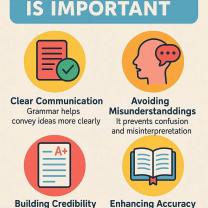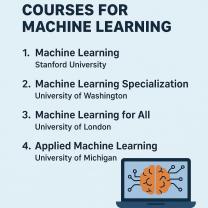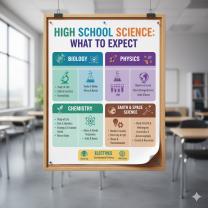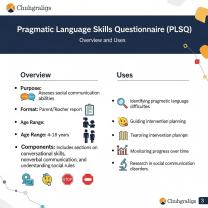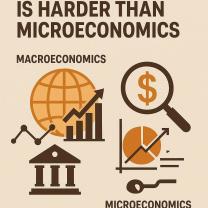Is higher education still worth it?
The value of higher education remains a topic of debate, and whether it is a worthwhile investment depends on various factors, including individual goals, career aspirations, financial circumstances, and the specific field of study. Here are some considerations to weigh when determining if higher education is worth it:
1. Career Opportunities: Many professions and industries still require a college degree as a minimum qualification. If your career goals include fields like medicine, law, engineering, or academia, higher education is often necessary to access these opportunities.
2. Earning Potential: On average, individuals with higher education tend to earn more over their lifetimes compared to those with only a high school diploma. However, the return on investment can vary significantly by field of study and the level of education attained.
3. Field of Study: The choice of major or field of study can significantly impact the return on investment. Some degrees, especially in STEM (Science, Technology, Engineering, and Mathematics) fields and certain healthcare professions, tend to lead to higher salaries and job stability. However, other fields may not offer the same financial benefits.
4. Student Loan Debt: The cost of higher education can be substantial, and many students graduate with student loan debt. It's crucial to consider the potential burden of debt and whether future earning potential justifies the investment.
5. Alternative Paths: In recent years, alternative education paths have gained popularity, such as vocational training, coding bootcamps, and online certifications. These options may provide specific job skills at a lower cost and in a shorter time frame.
6. Changing Job Market: The job market is dynamic and evolving, and the skills and qualifications needed for certain careers may change over time. It's important to research current job market trends and demand for specific skills.
7. Personal Goals: Some individuals value higher education for reasons beyond career prospects, such as personal growth, intellectual enrichment, and a love of learning. These non-financial factors can also contribute to the value of higher education.
8. Networking and Soft Skills: College can provide opportunities to build a professional network and develop valuable soft skills like critical thinking, communication, and problem-solving.
9. Scholarships and Grants: Financial aid in the form of scholarships and grants can significantly reduce the cost of higher education, making it a more attractive option.
In summary, whether higher education is worth the investment is a complex and individualized decision. It's important to carefully assess your personal goals, financial situation, and career aspirations when making this decision. Conduct thorough research into potential career paths, salary expectations, and educational costs, and consider alternative education options if they align with your objectives. Ultimately, higher education can still be a valuable investment for many individuals, but it should be approached thoughtfully and with a clear understanding of the potential benefits and trade-offs.
Is Higher Education Still a Valuable Investment?
Whether or not higher education is still a valuable investment is a complex question with no easy answer. There are a number of factors to consider, including the cost of college, the job market, and the individual's career goals.
On the one hand, higher education can lead to higher earnings and better job opportunities. According to the Bureau of Labor Statistics, workers with a bachelor's degree earn an average of $1,137 per week, compared to $793 per week for workers with only a high school diploma. Additionally, workers with a bachelor's degree are less likely to be unemployed than workers with less education.
On the other hand, the cost of college has been rising steadily in recent years. According to the College Board, the average cost of tuition and fees for a four-year public college in the United States is now over $27,000 per year. This can be a significant financial burden for students and their families.
Additionally, the job market is changing rapidly, and some jobs that used to require a college degree no longer do. For example, many software development jobs can now be filled by people with no formal education, but who have learned the necessary skills through online courses or bootcamps.
Weighing the Pros and Cons: Assessing the Value of Higher Education
When deciding whether or not to pursue higher education, it is important to weigh the pros and cons carefully. Consider the following factors:
- The cost of college: How much will college cost you? Will you be able to afford it without incurring a significant amount of debt?
- The job market: What kind of job do you want? What are the educational requirements for that job?
- Your career goals: What do you want to achieve in your career? Will a college degree help you to achieve your goals?
If you are unsure whether or not college is the right choice for you, there are a number of things you can do to learn more:
- Talk to people who have different levels of education. What are their experiences? What advice would they give you?
- Research the job market for the careers you are interested in. What are the educational requirements? What are the salary expectations?
- Talk to a financial advisor about the cost of college and how to afford it.
The Changing Landscape of Education: Is College Worth It Today?
The landscape of education is changing rapidly. New technologies are emerging, and new jobs are being created all the time. In this environment, it is more important than ever to be adaptable and to have the skills to learn new things quickly.
Some people argue that college is no longer the best way to prepare for the future workforce. They argue that students can learn the skills they need for good jobs through online courses, bootcamps, and other non-traditional means.
Others argue that college is still the best way to prepare for the future workforce. They argue that college teaches students essential critical thinking and problem-solving skills that are necessary for success in any job.
Ultimately, the decision of whether or not to pursue higher education is a personal one. There is no right or wrong answer. The important thing is to weigh the pros and cons carefully and to make the decision that is best for you.
My personal opinion
I believe that higher education is still a valuable investment, but it is important to choose the right path for you. If you are not sure what you want to do with your life, or if you are not sure if college is the right fit for you, there are other options available.
You can start by taking some online courses to see if you enjoy learning in that environment. You can also look for internships or apprenticeships to gain experience in a particular field.
And if you do decide to go to college, make sure to choose a school that is a good fit for you and that offers programs that are relevant to your career goals.








